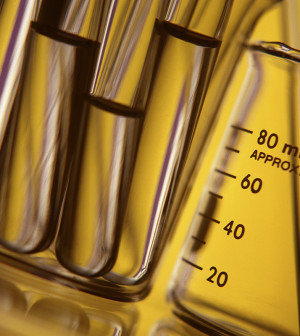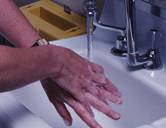- Double Mastectomy May Offer No Survival Benefit to Women With Breast Cancer
- Toxic Lead Found in Cinnamon Product, FDA Says
- Certain Abbott Blood Sugar Monitors May Give Incorrect Readings
- Athletes Can Expect High Ozone, Pollen Counts for Paris Olympics
- Fake Oxycontin Pills Widespread and Potentially Deadly: Report
- Shingles Vaccine Could Lower Dementia Risk
- Your Odds for Accidental Gun Death Rise Greatly in Certain States
- Kids From Poorer Families Less Likely to Survive Cancer
- Tough Workouts Won’t Trigger Cardiac Arrest in Folks With Long QT Syndrome
- At-Home Colon Cancer Test Can Save Lives
Many Anesthesiologists Fail to Wash Hands, Study Shows


Anesthesiologists may need to improve their hand hygiene habits during surgery, because they might be putting patients at risk for infections, a new study suggests.
Researchers observed anesthesiologists during operations and found that they had an average of 149 “hand hygiene opportunities” per hour of patient anesthesia time.
There are five hand hygiene opportunities that help reduce the risk of health care-associated infections, according to the World Health Organization. They are: before touching a patient; before a clean procedure; after exposure to body fluids; after touching a patient; after touching a patient’s surroundings.
Anesthesiologists were least likely to properly clean their hands during the first and last 20 minutes of patient anesthesia, which corresponds with sharp increases in bacterial contamination of the 20 most frequently touched objects during these same time periods.
The Dartmouth-Hitchcock Medical Center researchers also found that anesthesiologists were least likely to properly clean their hands immediately before patient contact and after contact with the patient’s surroundings, and most likely to properly clean their hands after potential exposure to body fluids.
“New methods to reduce bacterial contamination of the anesthesia work environment are needed to prevent health care-associated infections,” concluded the authors of the study published in the July issue of the American Journal of Infection Control.
Infections that occur after surgery are a common type of healthcare-associated infections. There are about 157,000 surgical site infections in the United States each year, according to the U.S> Centers for Disease Control and Prevention.
More information
The U.S. Centers for Disease Control and Prevention has more about health care-associated infections.
Source: HealthDay
Copyright © 2024 HealthDay. All rights reserved.










